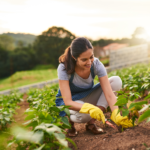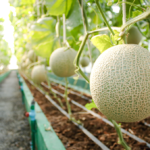
Food Bank Sets Precedent with Landmark
Zero-Waste Certification
- foodfightadmin
- September 11, 2023
- Climate Change, Food Bank Support, Food Waste
- findfood feature_four_three, resources feature top_three_two, rsc pages, rscl
- 0 Comments
Second Harvest Food Bank of Orange County has etched its name in history by becoming the first of its kind to secure a TRUE certification for zero waste. This series of measured shifts in their operational strategies has significantly reduced the organization’s waste output, marking a significant stride in the drive toward sustainability.
Recognized by Green Business Certification, Inc., the TRUE certification underscores Second Harvest‘s commitment to diverting practically all solid waste away from landfill sites, thus signaling a significant step in green business practices. TRUE, standing for Total Resource Use and Efficiency, is a testament to the food bank’s dedication to sustainable operations.
The sustainability strategies implemented by Second Harvest have witnessed a decline in the landfill contribution from 41% to a mere five percent. Remarkably, items such as edible and non-edible food, cardboard boxes, paper, and plastic cutlery that would have previously been discarded are now proactively repurposed, recycled, or reduced.
This development emerges against the backdrop of California food banks adapting to the SB1383 mandate, which necessitates that food producers increase their diversion of food from landfills. “We see ourselves as contributing to community health by providing healthier food. So we also have to look at the health of the entire community, which includes the health of the environment,” stated Claudia Bonilla Keller, Second Harvest CEO, underlining the organization’s pioneering role.
Acquiring necessary credits for the certification was a two-year endeavor involving thorough procedure evaluation, adaptation, communication, training and implementation. Crucially, Keller, along with leaders from logistics, operations, facilities, formed the core team in driving this transformation.
Utilizing the Six Sigma business improvement methodology was instrumental in seamlessly incorporating zero-waste practices within Second Harvest‘s operations, as per Kelly Alesi, Director of Sourcing, Logistics and Sustainability. Fine-tuning their grocery rescue program and adopting mindful sorting strategies enabled significant reductions in waste. Noteworthy tactics included heavy-duty plastic bins to replace degradable cardboard boxes and digital inspections replacing paper usage.
The team at Second Harvest hold Six Sigma‘s formalized structure for improving business processes in high regard. Alesi and two colleagues hold Black Belt rankings, which proved instrumental when introducing Six Sigma to the entire organization. This integrated methodology has proven invaluable in improving internal processes and facilitating smooth dialogue on potential improvements.
Alesi emphasized that any food bank can incrementally contribute to environmental sustainability. “Anybody can take these little steps,” she stated. “If they can’t get that full TRUE certification, they can at least take steps to divert from the landfill because it is just the right thing to do for the world and our environment and our community.” – Chris Costanzo








